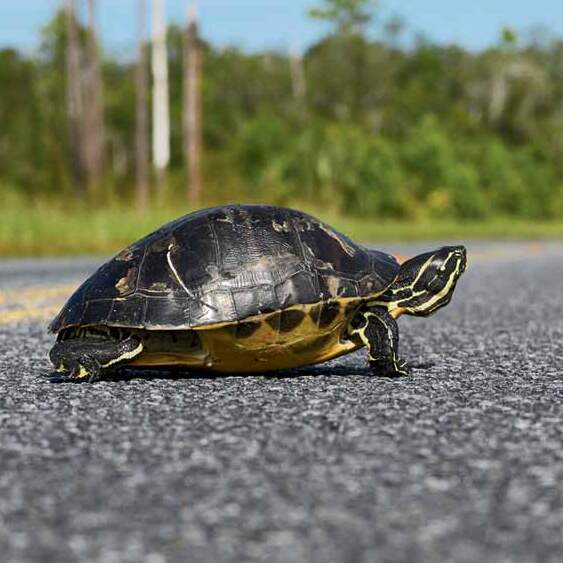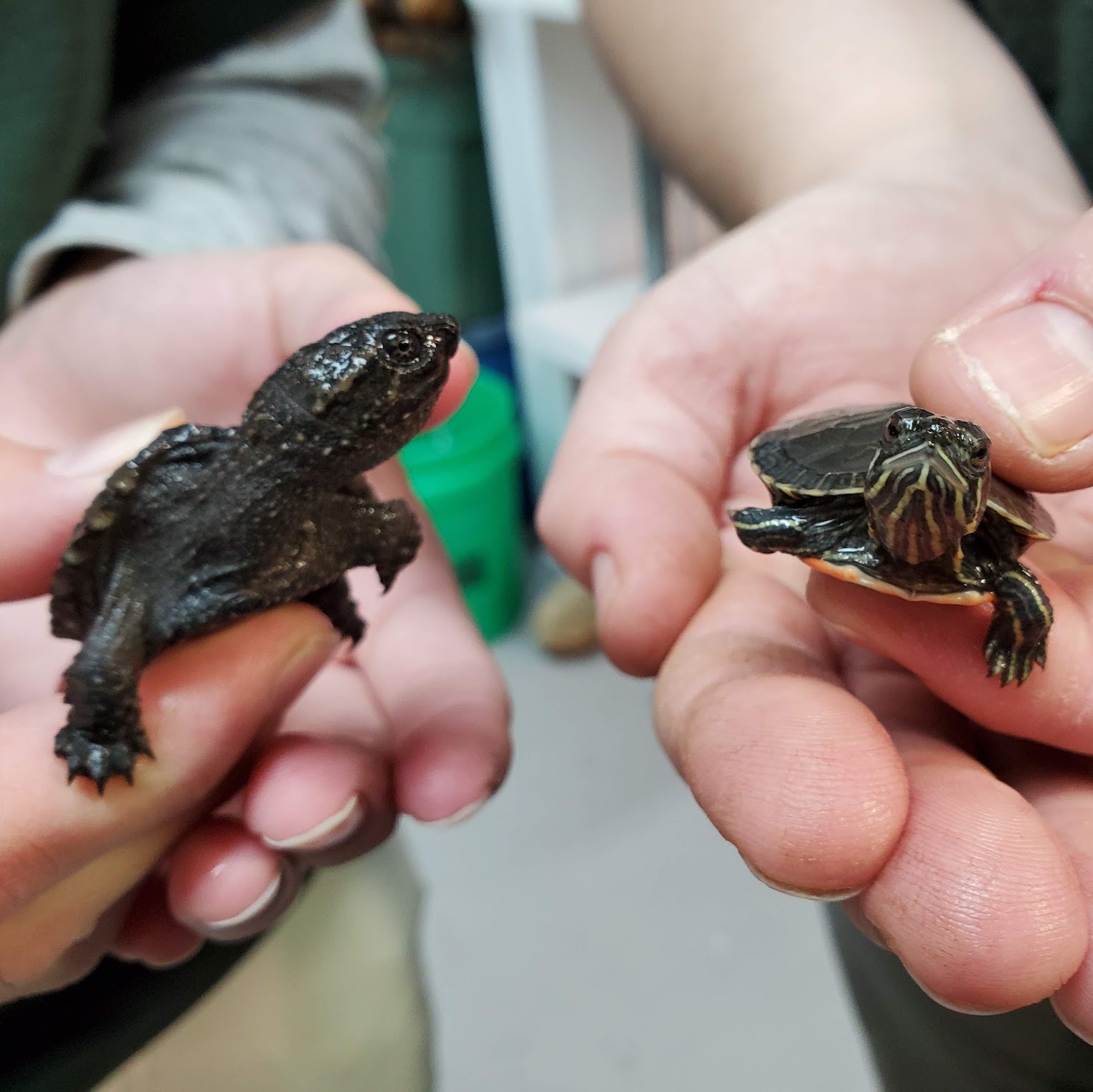If You’ve Found a Turtle You Believe is in Need of Assistance, Please Follow The Instructions Below

Turtles on Roadways
The most common turtle species in Northern Wisconsin are the Western Painted Turtle and the Common Snapping Turtle, though there are several other species that can be found throughout the area.
If you have found an uninjured turtle on a roadway
- You can help it to cross the road safely by placing the turtle on the side of the road in the direction it was heading.
- Turtles have specific destinations in mind and will go back onto the roadway in order to reach this destination if placed on the wrong side of the road
Be careful when handling turtles, especially Common Snapping Turtles.
- They can be extremely large and have a strong bite!
If you come across a Common Snapping Turtle on a roadway and wish to help it cross
- Contact NWC at (715) 356-7400 for instructions on how to safely handle it.
- Always be mindful of traffic and your own safety!
If you find a turtle that has been struck by a vehicle
- Contact NWC as soon as possible, even if the turtle has no visible injury.
- The turtle may have internal damage which needs to be treated and monitored.
- Contact NWC at (715) 356-7400 for instructions for safe handling and transporting tips!

Baby Turtles
In most cases, a turtle nest that has been disturbed by a scavenger or a domestic pet should be left alone.
Turtle eggs require very specific nest temperatures and humidity levels to develop properly.
- Be careful not to rotate or jostle eggs, as the developing embryo may become damaged and cease developing.
Once a young turtle hatches, it is completely self-sufficient and does not need the care of a parent, unlike infant birds and mammals.
If you find a baby turtle
- it can be left alone.
- If you are concerned for the turtle, you can transport it to the nearest water source.
- Do not feed the turtle, as it is unnecessary and can be damaging to the turtles heath
- If you are still concerned for the turtle or it appears to be injured, contact NWC at (715)356-7400 for advice.